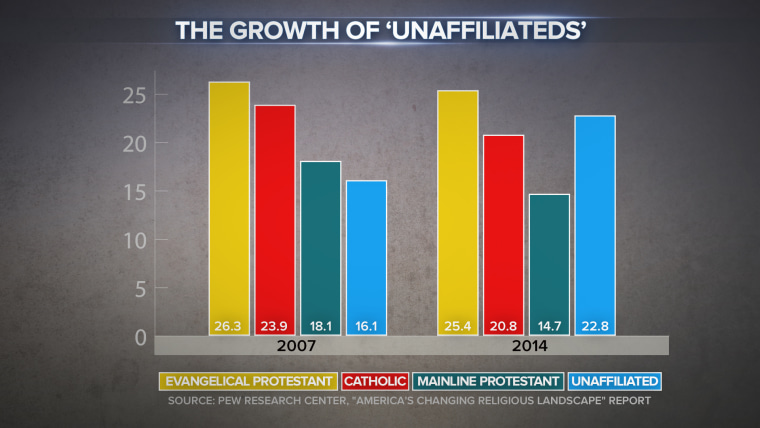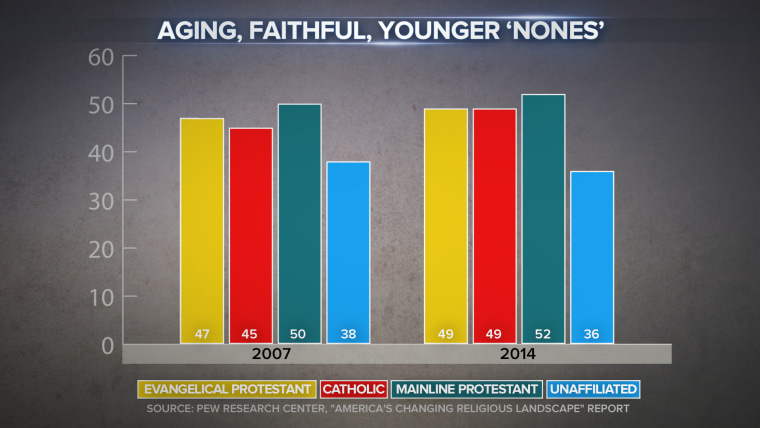The picture of faith in America is changing rapidly, according to data released by the Pew Research Center this past week, and those changes may have some big impacts the American political scene.
The United States is still overwhelmingly a Christian nation – more than 70% of adult Americans said were members of some Christian faith in 2014, according to the Pew data. But that figure is down from more than 78% in 2007. And the biggest growth area in the religious survey is "nones.” That is Americans without any firm religious affiliation – atheists, agnostics and those who say they are “nothing in particular.”
From 2007 to 2014, the percentage of adults that identify as unaffiliated climbed by nearly 7 points, from 16.1% to 22.8%. All other major religious affiliations saw declines, from Evangelicals to Catholics to Mainline Protestants.

Unaffiliated is now second to Evangelical Protestants in religious self-identifications among those four groups, the largest groups by percentage in the United States. In 2007, unaffiliated was fourth.
The future, in other words, looks as though it is trending toward those religious unaffiliateds. And that trend becomes even more pronounced when you look at the median ages of different religious adherents.
The median age for all the largest religious groups in the United States climbed between 2007 and 2014, except for the unaffiliated. Their median age declined. In 2014, all of the biggest religious groups had a median age of 49 or older, except, again, for the unaffiliated, with a median age of 36.

These numbers are about more than what Americans believe and how they worship, they also have big potential political impacts. Why? That young, growing group of unaffiliateds, is overwhelming Democratic in its voting habits.
In 2012, they gave 70% of their vote to Barack Obama according to exit polls and that was up from figures in the 2000 and 2004 exit polls, when 61% and 64% of those voters went Democratic in those presidential campaigns respectively. Of the big four faith groups unaffiliateds are, by far, the most reliably Democratic.
Taken together, these numbers are significant and may have far-reaching, long-term effects on the political landscape.
Politics isn’t just about candidates and policies, it is about culture – from what we read and watch, to where we shop and eat, to where and how we worship (if we worship). And splits on faith are some of deepest divides in politics because they are about what people believe at their core. They are pretty stable.
Exit polls show that white protestant voters – mainline and evangelical – consistently vote Republican. Black protestant and Jewish voters consistently vote Democratic. Catholics tend to go back and forth but within a fairly small range with the winning candidate in an election capturing that segment by a few points.
The rapid growth of unaffiliated voters is in one way that the important, generally stable world of faith in politics is changing. And these numbers suggest it is changing in a way that strongly favors Democrats.